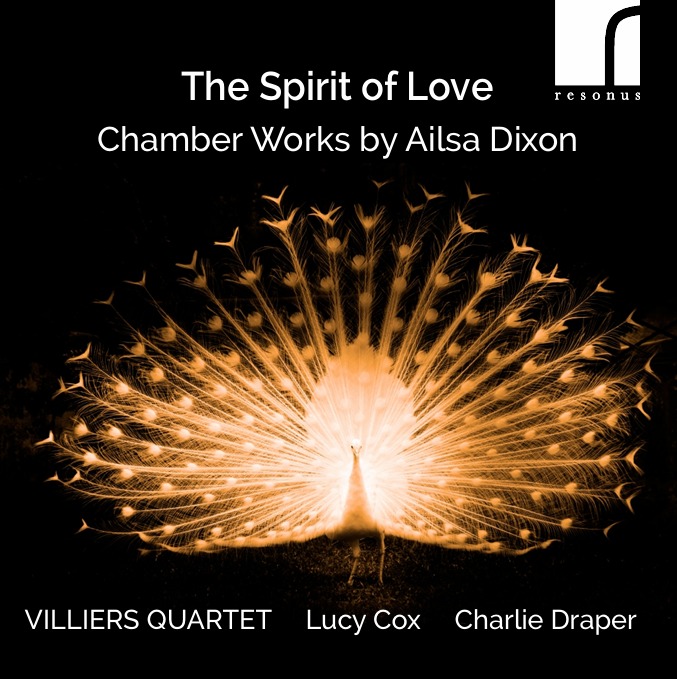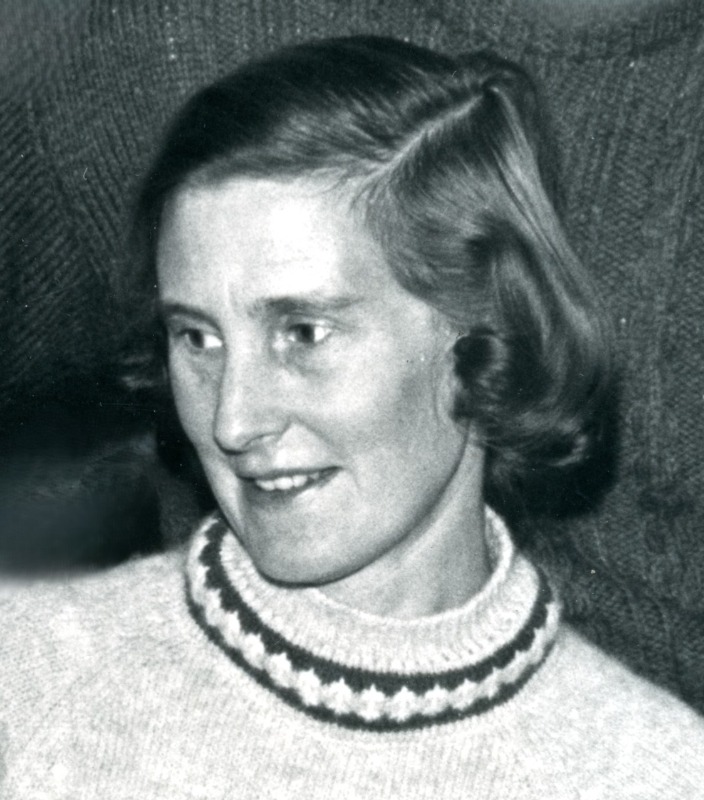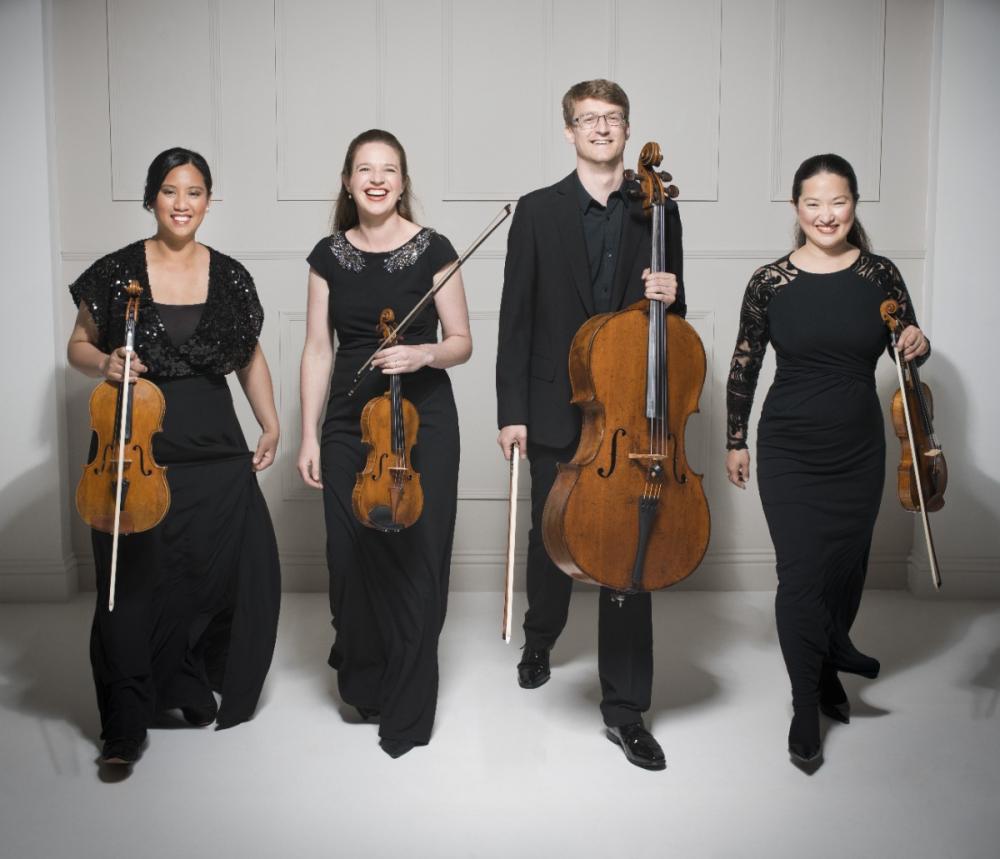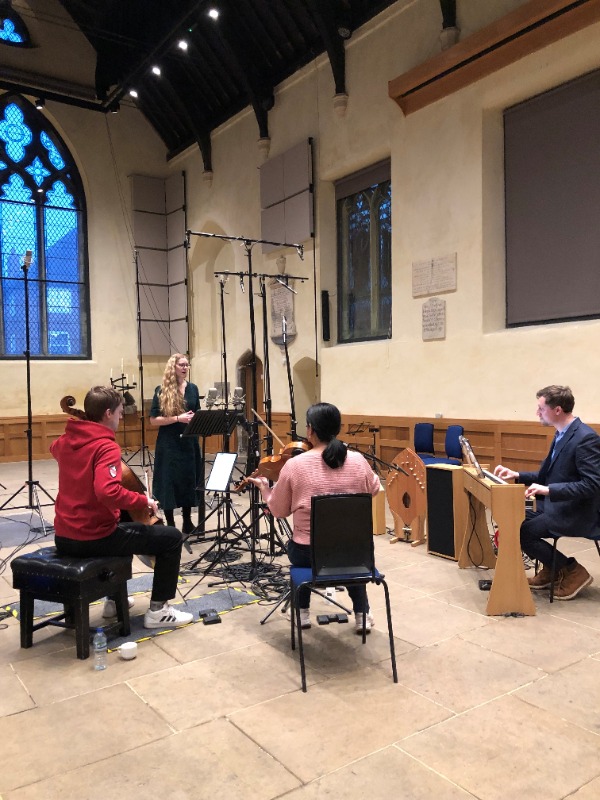search
date/time
 | Cumbria Times A Voice of the Free Press |
1:00 AM 21st August 2025
arts
Landmark Recording And Publications For Durham Composer Ailsa Dixon


Ailsa Dixon
Readers may recall an article last year on the historic revival of music by Ailsa Dixon (1932-2017), showcased in a concert in 2024 at Durham University where she studied in the 1950s. The resurgence of interest in Dixon’s music is now being marked by a new recording of her chamber music on the Resonus Classics label. It comes from the pioneering Villiers Quartet, renowned for championing the work of British composers, and led by violinist Katie Stillman, now at the helm of Opera North.
Alongside the recording to be released on 22nd August, Dixon’s musical scores are being published for the first time by Composers Edition. To launch this initiative, the works featured on the recording were published on the anniversary of her death on 8th August. A succession of further works will be published in the autumn, including songs, instrumental pieces, a sonata for piano duet, and the anthem for choir which launched the revival of her music shortly before she died.

Villiers Quartet
Photo: Charles Gervais
Two of the works on this recording were unperformed during Dixon’s lifetime, and all of them remained in manuscript until her daughter began working through the musical archive left after her death, getting the scores digitised and contacting musicians to arrange their performance.
The Spirit of Love, a set of songs for soprano and string quartet, gives the title to this recording of works from Ailsa Dixon’s most fertile period of composition in the 1980s and 1990s. It was premiered posthumously by the performers on this recording, at St George’s Bristol in February 2020. On that occasion a spellbound reviewer for the British Music Society registered ‘a feeling that something special had just occurred.’ When performed at the Nottingham Chamber Music Festival in 2024, the songs were hailed as a ‘stunning find’, with their ‘lush harmonies’ and ‘strange yet still beautiful dissonances’. The soaring soprano lines above the quartet give these songs a transcendent quality, and a capacity to move that demands the listener’s life be put on hold. That magic is beautifully created on this recording by singer Lucy Cox and the Villiers Quartet in performances of radiant intensity. The first of the songs, released as a single in advance of the complete recording (listen here), was aired on BBC Radio 3’s Essential Classics within days.
The recording also features the premiere performance of Dixon’s earliest known work, a Scherzo for string quartet composed while she was at Durham University in 1955. It was believed to be lost until the manuscript, in faded blue ink, turned up in an attic after she died. This delightful, mercurial piece, which earned her the Kisch Prize, shows remarkable assurance for a 22-year old, and already bears some of the hallmarks of her compositional style. Thanks to this new recording, it can now be heard for the first time, 70 years after it was written. The ‘lost’ Scherzo has also been released in advance as a single, and is ready for listening here.
The most unusual track on the recording, Shining Cold, features a rare combination of instruments, in which soprano, viola and cello are joined by the ondes Martenot, played by Charlie Draper. An early electronic instrument dating from the 1920s, its eerie, shimmering and swooping sounds have featured in film soundtracks from Lawrence of Arabia to Ghostbusters, and in Messiaen’s Turangalila Symphony. Unusually, Ailsa Dixon pairs it with voice and strings to explore their contrasting sonorities in a haunting wordless vocalise. The Villiers Quartet’s viola player Carmen Flores described the recording as a ‘unique experience’ and ‘a very special sound’.

Recording Shining Cold at NCEM, York
This eagerly anticipated release has already been previewed on the other side of the globe in a classical music publication based in Hong Kong:
‘This is more than just a new album; the release of The Spirit of Love represents a pivotal moment for the rediscovery and appreciation of Ailsa Dixon’s diverse and compelling chamber music – music which combines lyrical lines, adventurous harmonies, and a spiritual undercurrent, brought to life with vibrant intensity and finesse by the Villiers Quartet, Lucy Cox and Charlie Draper. This recording offers listeners an insightful journey into the rich, previously under-exposed world of a significant British composer.’
Publishing the scores
It is rare for a composer’s entire oeuvre to remain unpublished in their lifetime despite significant public performances of the music. This gives a historic dimension to the publication of Ailsa Dixon’s scores eight years after her death. Dozens of works left in manuscript in her private archive have been digitised and edited, to produce performing scores which will now be accessible to amateur and professional musicians alike.
Recognising the importance of this endeavour, some of the musicians who gave these works their first performance have been involved in editing the scores for publication this year. Lutenist Lynda Sayce, who gave Ailsa Dixon’s 3 Fugues on Biblical Subjects their first performance on a multi-tracked home recording during the 2020 lockdown, has now edited them for publication, while Waka Hasegawa, one half of the piano duo Piano4hands who premiered her sonata for piano duet, Airs of the Seasons, has produced the performing edition. Joshua Ballance’s string orchestra arrangement of Ailsa Dixon’s Nocturnal Scherzo (originally for string quartet) was premiered at the High Barnet Chamber Music Festival in 2022, and will now be published for future performance by orchestras interested in exploring this new repertoire.
These landmark publications are coming out from Composers Edition, an independent publishing enterprise serving composers, performers and champions of contemporary music-making. Emerging out of founder Dan Goren’s work at the British Music Information Centre on publishing services and an online browsable library of contemporary music, it was established with the support of the Holst Foundation, The Britten-Pears Foundation and Arts Council England. It now features over a hundred composers from around the world, publishing more than 4,000 musical works, from solo and chamber pieces to choral and large-scale orchestral works, for an ever-growing global community of performers, libraries and educational institutions. Commenting on this new acquisition to their list, Dan Goren comments "Bringing hitherto under-represented yet brilliant music to wider attention is in the DNA of Composers Edition, so we are delighted to be publishing the treasure-trove of works by Ailsa Dixon, in collaboration with her daughter Josie. Here is music of real intelligence and instinct - direct, fresh and captivating. I’m sure it will be welcomed by musicians and audiences everywhere."
The recording and publication of Ailsa Dixon’s works represents another milestone in the revival of her music, which began in 2017 with the premiere of her anthem, These things shall be, 30 years after it was written and just five weeks before she died. It is poignant to think she had so little recognition in her lifetime, but the Shakespeare sonnet she chose to be read at her funeral suggests that she cherished a hope that her compositions would survive her. Since brass, nor stone, nor earth, nor boundless sea is a ‘fearful meditation’ on the inexorable destruction wrought by time, countered at the end with a fragile note of defiance: ‘unless this miracle have might, That in black ink my love may still shine bright’. A succession of posthumous premieres, the recording of her chamber music, and now the publication of her scores have fulfilled that hope beyond her wildest dreams.